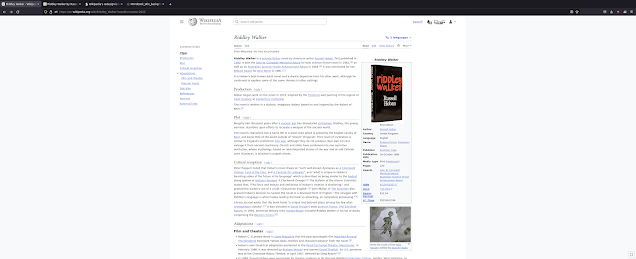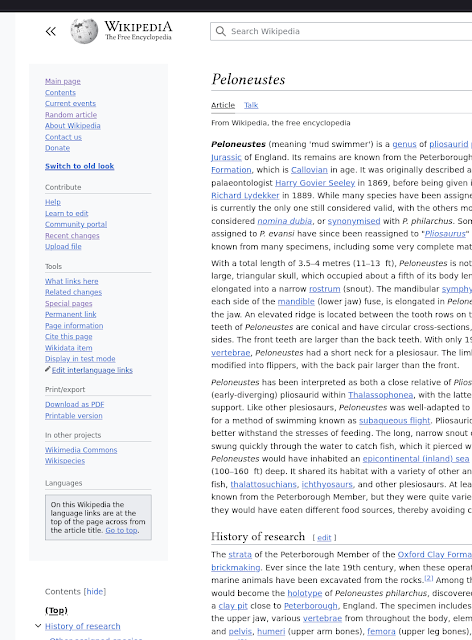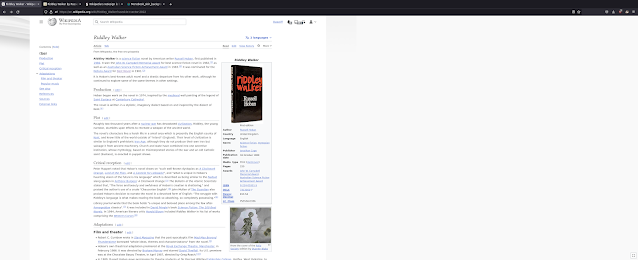This is a rather unique book. It tells the odyssey of the eponymous Riddley Waler who lives in a far future dystopia after a nuclear war reduced human civilization back to the iron age. Essentially, a series of events happen that lead to the protagonist being forced to leave his community where he interacts with the larger post-apocalyptic society he finds himself in and its various political, mythological and philosophical elements, stumbles upon the re-invention of gun powder, and in the end becomes a traveling story teller.
Plenty of books have been written with the premise of nuclear war destroying civilization. What makes this book unique is the writing style. To signify that significant time has passed, all the spelling in the book is non-standard. For example, here is a quote:
The worl is ful of things waiting to happen. Thats the meat and boan of it right there. You myt think you can jus go here and there doing nothing. Happening nothing. You cant tho you bleeding cant. You put your self on any road and some thing wil show its self to you. Wanting to happen. Waiting to happen. You myt say, 'I dont want to know.' But 1ce its showt its self to you you wil know wont you. You cant not know no mor. There it is and working in you. You myt try to put a farness be twean you and it only you cant becaws youre carrying it inside you. The waiting to happen aint out there where it ben no more its inside you.
As you can imagine, this is pretty frustrating to read a times. Sometimes I think something means something, and discover chapters later that I misinterpreted it. I suspect if I read it a second time I would get a lot more out of it, but I also don't know I want to. At the same time I'm glad I read it at least once. It does feel quite different from any other books I've read.
One of things I like most about this book is the world truly feels alien. Too often science fiction books have aliens with superficial differences that feel basically the same as any modern day western culture. Although these are of course not aliens, I really did feel that this book depicted a society very different from our contemporary society. It wasn't just America with one quirk changed.
A large part of the book deals with the myth around "Eusa". I originally thought that this was talking about the United States and nuclear war, but it appears it is actually about St. Eustace. Or perhaps the intention is to be both? It is certainly interesting when reading this book how you can think one thing and then end up re-evaluating it all later.
The most closest comparison to another book is probably certain scenes in Cloud Atlas, although it seems that David Mitchell was taking very direct inspiration from this novel. However if you ignore the unique language, I think The Shadow of the Torturer is kind of similar. Which is interesting, as I didn't really like that book, but I got the same sort of feel from it. I suppose its the journey through a different world vibe that is similar.
In conclusion, certainly an interesting book but also a very frustrating book. I liked it but I don't think I would ever want to read it again.





